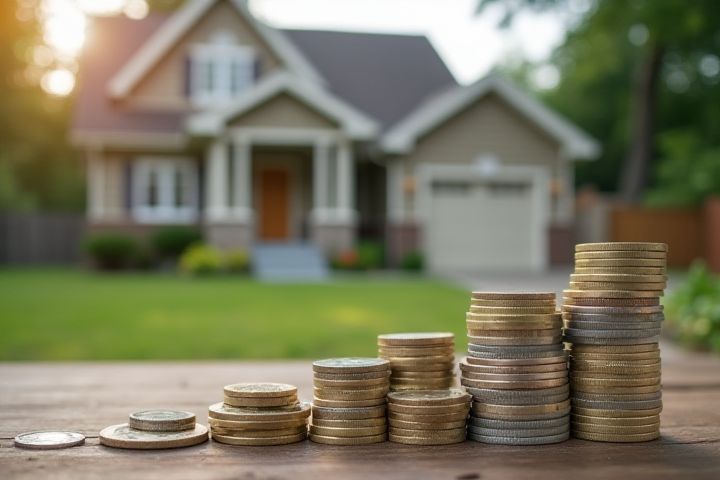
House flipping involves purchasing undervalued properties, making necessary renovations, and then selling them at a profit. Investors often target distressed homes in prime neighborhoods, allowing for significant appreciation after improvements. These renovations typically include updates to kitchens, bathrooms, and curb appeal enhancements to attract potential buyers. Successful house flippers analyze market trends and property values to determine the right buying and selling prices. By understanding the local real estate market, you can maximize your returns while minimizing the risks associated with flipping houses.
What Does House Flipping Involve
Property Acquisition
Property acquisition in house flipping involves identifying undervalued properties with significant potential for improvement. Investors typically focus on distressed homes in desirable neighborhoods, often looking for properties priced at least 20-30% below market value. Conducting thorough market research, including analyzing recent sales data and neighborhood trends, is crucial to assess the property's future worth. Once a suitable property is identified, securing financing options, such as cash purchases or loans, can expedite your acquisition process, setting the stage for profitable renovations and resale.
Market Analysis
Market analysis in house flipping involves a thorough assessment of real estate trends, values, and neighborhood dynamics. You should examine historical sales data, current listings, and property appreciation rates to identify lucrative opportunities. Understanding the average time properties spend on the market and seasonal fluctuations can significantly enhance your investment decisions. By focusing on key metrics such as the price-to-rent ratio and comparable sales, you can make informed choices that maximize profitability in your house flipping venture.
Renovation Planning
Renovation planning in house flipping involves a detailed assessment of the property to determine necessary upgrades and potential return on investment. You should prioritize areas like kitchens and bathrooms, which can yield up to a 70% to 80% return when remodeled effectively. Creating a comprehensive budget that includes material costs, labor, and unexpected expenses is essential, typically allocating 10% for unforeseen issues. A well-structured timeline, outlining each phase of the renovation, can help ensure the project stays on schedule and within budget, maximizing profitability.
Budget Management
House flipping involves purchasing properties at lower prices, renovating them, and selling them for a profit. Budget management is crucial in this process, as you need to allocate funds for both the purchase and the renovation effectively. You should create a detailed budget that includes costs for materials, labor, permits, and unexpected expenses, ensuring you stay within financial limits. Monitoring your spending throughout the project allows you to make informed decisions and maximize your return on investment.
Project Timeline
House flipping typically involves purchasing a property, renovating it, and selling it for a profit, often within a 3 to 6-month timeline. The project timeline begins with identifying a suitable property, which may take 2 to 4 weeks, followed by a closing period of 30 to 45 days. Renovations, crucial to increasing the property's value, usually occupy 4 to 8 weeks, depending on the extent of work needed. Finally, listing and selling the property can take an additional 30 to 90 days, highlighting the need for efficient project management and market awareness.
Hiring Contractors
House flipping involves purchasing a property at a lower price, renovating it, and then selling it for a profit. Hiring contractors is a crucial component of this process, as skilled professionals can efficiently manage renovations, ensuring timely project completion and high-quality workmanship. When selecting contractors, evaluate their previous work, verify their licenses and insurance, and obtain multiple quotes to ensure competitive pricing. Effective communication with your contractors will help align project timelines with your financial goals and enhance the overall success of your flipping venture.
Property Inspection
Property inspection in house flipping involves a thorough evaluation of the property's condition, including structural integrity, plumbing, electrical systems, and roofing. Inspectors typically examine key areas such as foundation stability and mold presence, which can significantly impact repair costs and overall investment. A comprehensive inspection report not only reveals potential issues but also helps in estimating renovation budgets, often ranging from $15,000 to over $100,000 depending on the severity of the repairs. Investing in a quality inspection can save you from unexpected expenses and ensure your flipping project aligns with your financial goals.
Real Estate Regulations
House flipping involves purchasing residential properties, renovating them, and selling them for a profit, but it requires a solid understanding of real estate regulations. Each state has specific laws governing property transactions, inspections, and necessary permits, which can significantly affect your flipping timeline and budget. Familiarity with zoning laws is crucial, as they dictate how a property can be used and may impact its resale value. Violating these regulations can lead to fines or legal issues, so thorough research is essential to ensure compliance and maximize your investment's profitability.
Marketing Strategy
House flipping involves purchasing properties, renovating them swiftly, and selling them for a profit. A successful marketing strategy often incorporates digital platforms, where leveraging social media to showcase before-and-after images can attract potential buyers and increase engagement. Utilizing targeted online ads can help reach specific demographics, ensuring your listings are viewed by those most likely to invest. To enhance visibility, consider hosting open houses and collaborating with local real estate agents, tapping into their networks to broaden your outreach and expedite sales.
Sales Process
House flipping involves purchasing undervalued properties, renovating them, and reselling them for a profit. The sales process begins with property acquisition, where investors analyze market trends and comparable sales data to identify potential properties. After renovations, accurate pricing based on updated appraisals and competitive market analysis is crucial for attracting buyers. Ultimately, effective marketing strategies, including online listings and open houses, are essential in closing sales efficiently and maximizing returns on investment.
